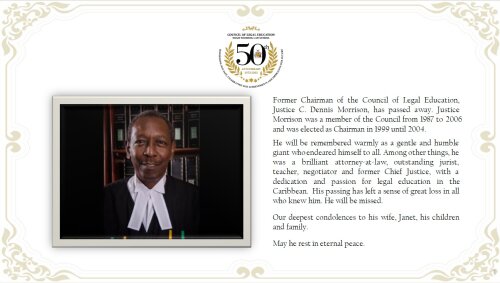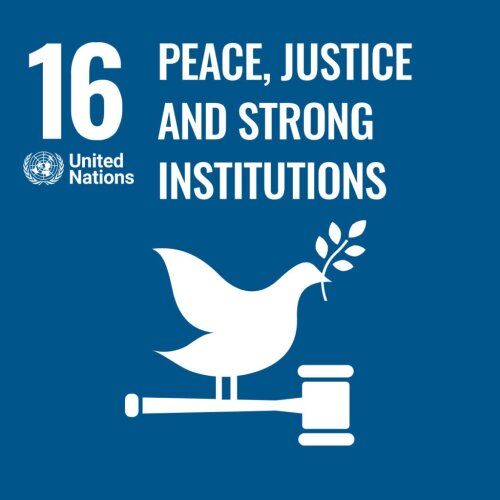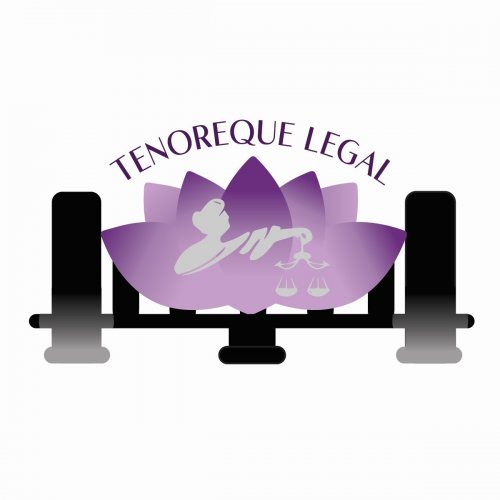Best Military Law Lawyers in Port of Spain
Share your needs with us, get contacted by law firms.
Free. Takes 2 min.
List of the best lawyers in Port of Spain, Trinidad and Tobago
About Military Law in Port of Spain, Trinidad and Tobago
Military Law in Port of Spain, Trinidad and Tobago, refers to the set of legal codes and regulations governing the conduct and affairs of the Trinidad and Tobago Defence Force. This legal framework addresses issues such as military discipline, justice, and personnel administration, and is designed to maintain order, discipline, and justice among the members of the armed forces. Governed by both national and international legal standards, Military Law ensures that members of the military adhere to lawful conduct and procedures while carrying out their duties in service to the nation.
Why You May Need a Lawyer
There are several situations where individuals involved with the military in Trinidad and Tobago might require legal assistance. Common scenarios include disputes regarding military discipline, allegations of misconduct, and cases related to military trials and tribunals. Service members may also need legal help with issues pertaining to military benefits, retirement, and discharge disputes. Additionally, military families may require assistance with legal matters such as family support or estate planning when a service member is deployed.
Local Laws Overview
Key aspects of local laws relevant to Military Law in Port of Spain, Trinidad and Tobago include the Defence Act and related regulations, which establish the legal basis for military governance and disciplinary actions. The act outlines procedures for courts-martial, which are specialized military tribunals designed to adjudicate offenses committed by military personnel. Additional laws relevant to Military Law encompass directives regarding the rules of engagement, the conduct of military operations, and compliance with international treaties and obligations.
Frequently Asked Questions
What is the Defence Act?
The Defence Act is the primary legislation governing military operations, discipline, and justice within the Trinidad and Tobago Defence Force. It includes rules and regulations related to conduct, discipline, and penalties for military personnel.
How does a court-martial work?
A court-martial is a military court that tries members of the armed forces for breaches of military law. It functions similarly to a civilian court, with an established procedure for trials, representation, and appeals.
Can civilians be tried under Military Law?
Generally, Military Law applies primarily to members of the armed forces. However, civilians who work with the military under specific circumstances, such as during unique operational settings or under martial law, might be subject to military jurisdiction.
What rights do military personnel have under Military Law?
Military personnel have rights to a fair trial, representation, and appeal, similar to civilians, though these rights are exercised within the context of a military judicial framework designed to address disciplinary matters efficiently and effectively.
How can a lawyer assist with a military discharge appeal?
A lawyer can review the case details, ensure due process was followed, and represent the service member in appealing a discharge they believe to be unjust. They provide legal strategy and advocacy to improve the likelihood of a favorable outcome.
What are some common offenses that lead to court-martial?
Common offenses include insubordination, desertion, theft of military property, and conduct unbecoming an officer. Each of these can lead to severe penalties if proven in court.
Are there special considerations for family members of military personnel?
Yes, military families may need legal advice on matters related to family support, deployment-related arrangements, and benefits entitled to them due to the service member's status.
What role does international law play in the local military legal system?
International law influences military operations and ensures compliance with international treaties, including those concerning the treatment of prisoners of war, humanitarian conduct, and engagement rules during conflicts.
How does one become a military lawyer in Trinidad and Tobago?
To become a military lawyer, an individual must have a law degree and be admitted to practice law in Trinidad and Tobago. They may then apply to serve in the legal branch of the Trinidad and Tobago Defence Force, where they receive specialized training in Military Law.
Are service members always subject to Military Law?
Yes, service members are subject to Military Law at all times, whether on duty or off duty. However, certain minor offenses might be handled within the civilian legal system instead.
Additional Resources
For those seeking further information or legal assistance in Military Law, various resources are available. The legal office of the Trinidad and Tobago Defence Force provides guidance and representation for service members. Additionally, the Law Association of Trinidad and Tobago offers resources for finding qualified attorneys with expertise in Military Law. Governmental bodies such as the Ministry of National Security can also direct individuals to appropriate support services.
Next Steps
If you need legal assistance regarding Military Law, the first step is to consult with a qualified attorney who specializes in this area. Schedule a consultation to discuss your case and seek their advice on how to proceed. Additionally, gather any relevant documents such as military records, correspondence, or statements related to your situation. Proper preparation and professional legal counsel are crucial to navigating the complexities of Military Law effectively.
Lawzana helps you find the best lawyers and law firms in Port of Spain through a curated and pre-screened list of qualified legal professionals. Our platform offers rankings and detailed profiles of attorneys and law firms, allowing you to compare based on practice areas, including Military Law, experience, and client feedback.
Each profile includes a description of the firm's areas of practice, client reviews, team members and partners, year of establishment, spoken languages, office locations, contact information, social media presence, and any published articles or resources. Most firms on our platform speak English and are experienced in both local and international legal matters.
Get a quote from top-rated law firms in Port of Spain, Trinidad and Tobago — quickly, securely, and without unnecessary hassle.
Disclaimer:
The information provided on this page is for general informational purposes only and does not constitute legal advice. While we strive to ensure the accuracy and relevance of the content, legal information may change over time, and interpretations of the law can vary. You should always consult with a qualified legal professional for advice specific to your situation.
We disclaim all liability for actions taken or not taken based on the content of this page. If you believe any information is incorrect or outdated, please contact us, and we will review and update it where appropriate.














